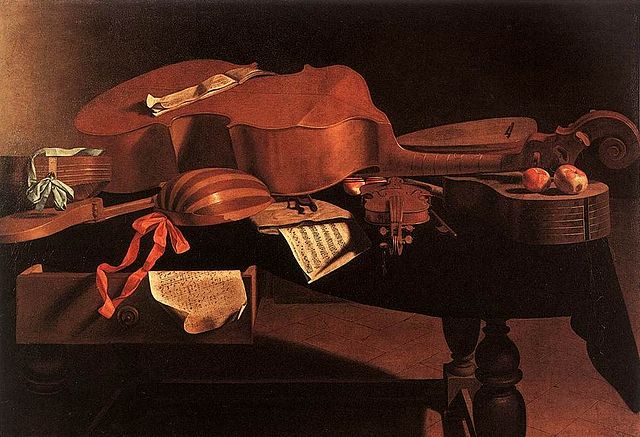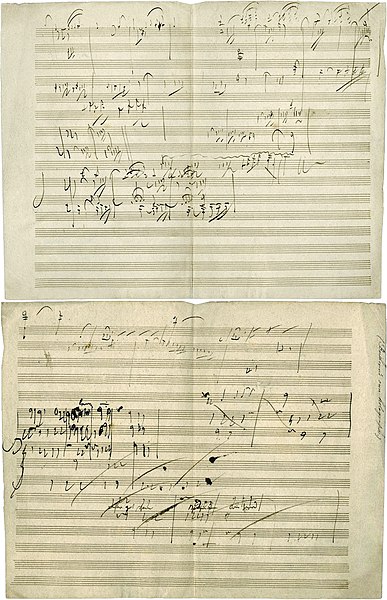Classical music generally refers to the art music of the Western world, considered to be distinct from Western folk music or popular music traditions. It is sometimes distinguished as Western classical music, as the term "classical music" can also be applied to non-Western art musics. Classical music is often characterized by formality and complexity in its musical form and harmonic organization, particularly with the use of polyphony. Since at least the ninth century it has been primarily a written tradition, spawning a sophisticated notational system, as well as accompanying literature in analytical, critical, historiographical, musicological and philosophical practices. A foundational component of Western culture, classical music is frequently seen from the perspective of individual or groups of composers, whose compositions, personalities and beliefs have fundamentally shaped its history.
A youth orchestra performing
An illuminated opening from the Chigi codex featuring the Kyrie of Ockeghem's Missa Ecce ancilla Domini
Baroque instruments including hurdy-gurdy, harpsichord, bass viol, lute, violin, and baroque guitar
Joseph Haydn (1732–1809), portrayed by Thomas Hardy (1791)
Art music is music considered to be of high phonoaesthetic value. It typically implies advanced structural and theoretical considerations or a written musical tradition. In this context, the terms "serious" or "cultivated" are frequently used to present a contrast with ordinary, everyday music. Many cultures have art music traditions; in the Western world, the term typically refers to Western classical music.
Beethoven's autographic sketch for his Piano Sonata No. 28, Movement IV, Geschwind, doch nicht zu sehr und mit Entschlossenheit (Allegro). He completed the piece in 1816.





